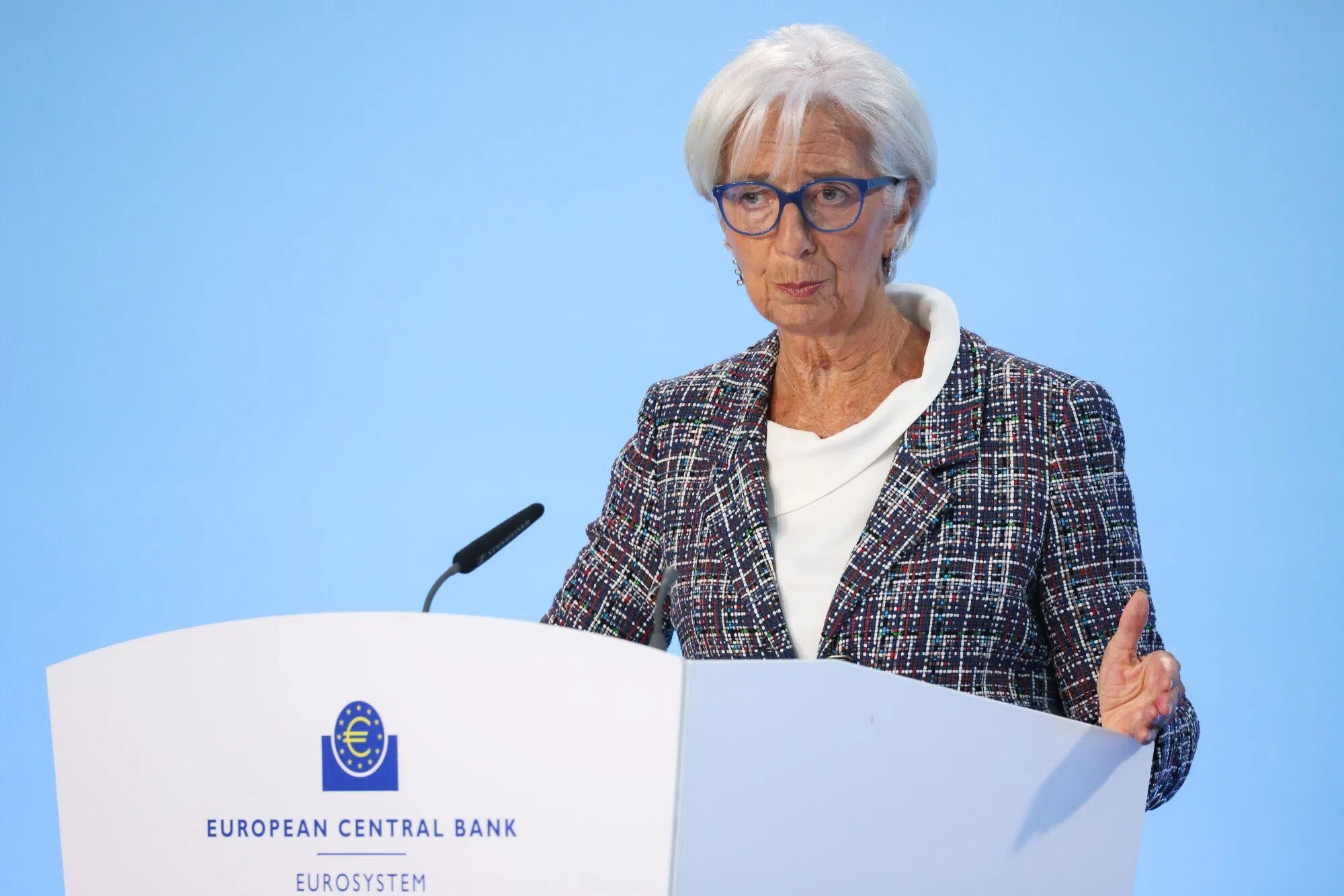THE European Central Bank firmly backs the European Union’s push to bring budget policies in indebted nations in line with the region’s fiscal rules, president Christine Lagarde said.
Without specifically referring to the current question mark over public finances in her home nation of France, the institution’s chief insisted the bloc’s regime must be “respected” as she repeated an earlier statement crafted by the ECB Governing Council.
“Implementing the EU’s revised economic governance framework fully and without delay will help governments bring down budget deficit and debt ratios on a sustained basis,” Lagarde said. “This was discussed, and we believe that it’s a very strong endorsement of the principle of discipline, so that all member states who have adhered and agreed to a set of rules under the fiscal governance framework will actually apply those rules and principles.”
The remarks follow intensified market scrutiny of the public finances of indebted euro-area members including France and Italy. The two were among several nations scolded in June by the European Commission, the EU’s executive arm, for running deficits well above the bloc’s 3 per cent ceiling.
Five countries deemed as “high risk in the medium term” – Belgium, Greece, Spain, France and Italy – must try harder to repair their public finances, the Brussels-based European Fiscal Board, the bloc’s advisory watchdog, said in a report this month.
“There is a process that is under way, that will take them to submit the multi-annual proposals that will be then reviewed,” Lagarde told reporters in Frankfurt, describing how the commission’s monitoring regime will proceed. “This is certainly the set of rules that have to be implemented and respected.”
Frankfurt policymakers are concerned that rising public spending could add to inflationary pressures. Dutch Governing Council member Klaas Knot warned recently that “if fiscal policy cannot be kept in check, we have to maintain higher interest rates than we would otherwise have to.”
France’s finances are shrouded in uncertainty after a turbulent election delivered a hung parliament. At one point during the campaign, the sell-off in French bonds drove the premium on the country’s borrowing costs compared with Germany to the highest since the region’s sovereign debt crisis more than a decade ago.
Italy, meanwhile, has an even bigger debt pile than France. Borrowings as a percentage of gross domestic product fell to 137 per cent last year but have now resumed an upward trajectory. The country is on course to surpass Greece with the region’s biggest debt ratio within three years, according to Scope Ratings. BLOOMBERG







